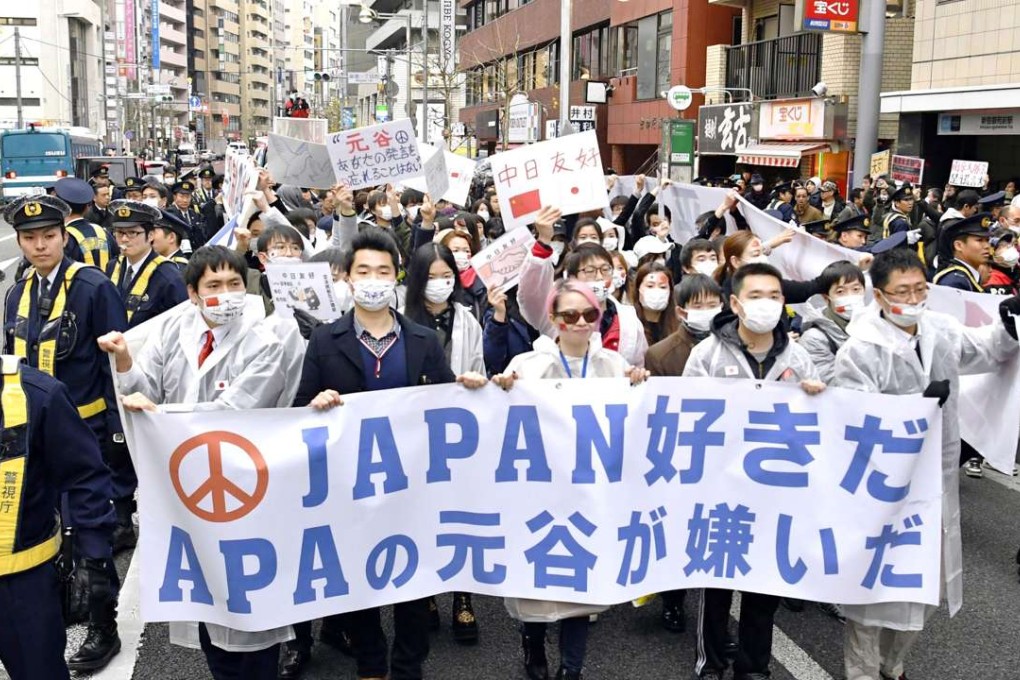Freedom to insult invites backlash
Japanese hotelier Toshio Motoya has the right to foist his revisionist version of history on his guests – and they have every right to protest

Toshio Motoya’s entrepreneurship has stood him in good stead in the Japanese accommodation industry. But his marketing skills leave much to be desired. With many of his guests Chinese and South Korean, he believed a good way of airing his revisionist views of history was by writing a book and putting a copy in each of the rooms of his 400 APA hotels. As the founder and president, he has every right to exercise freedom of speech, but those who disagree are equally justified in letting him know their opinions.
Hundreds demonstrating in Tokyo have called for a boycott of his hotels.
Chinese authorities have been urging tour operators to stop doing business with APA. But while it has refused to remove the books, APA has made a small concession by promising to temporarily take the offending materials away from a hotel being used for next month’s Asian Winter Games in Sapporo.
The book follows a well-trodden line among nationalists, including Prime Minister Shinzo Abe and others in his cabinet: that the Nanking Massacre, in the city now called Nanjing, did not occur and that no women were forced into sex slavery to serve Japanese soldiers. Beijing and many historians contend that the invading forces killed up to 300,000, many of them civilians, in the Chinese city during 1937 and 1938, a figure that Tokyo insists is inflated and that rather than being a massacre, was the result of the casualties to be expected from a battle zone. Of the so-called “comfort women”, Tokyo has claimed that women saw the invading forces as an opportunity to make money through prostitution.